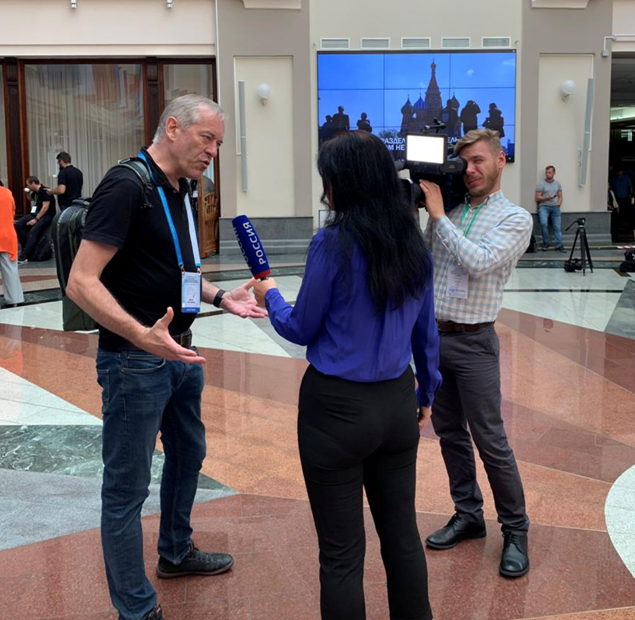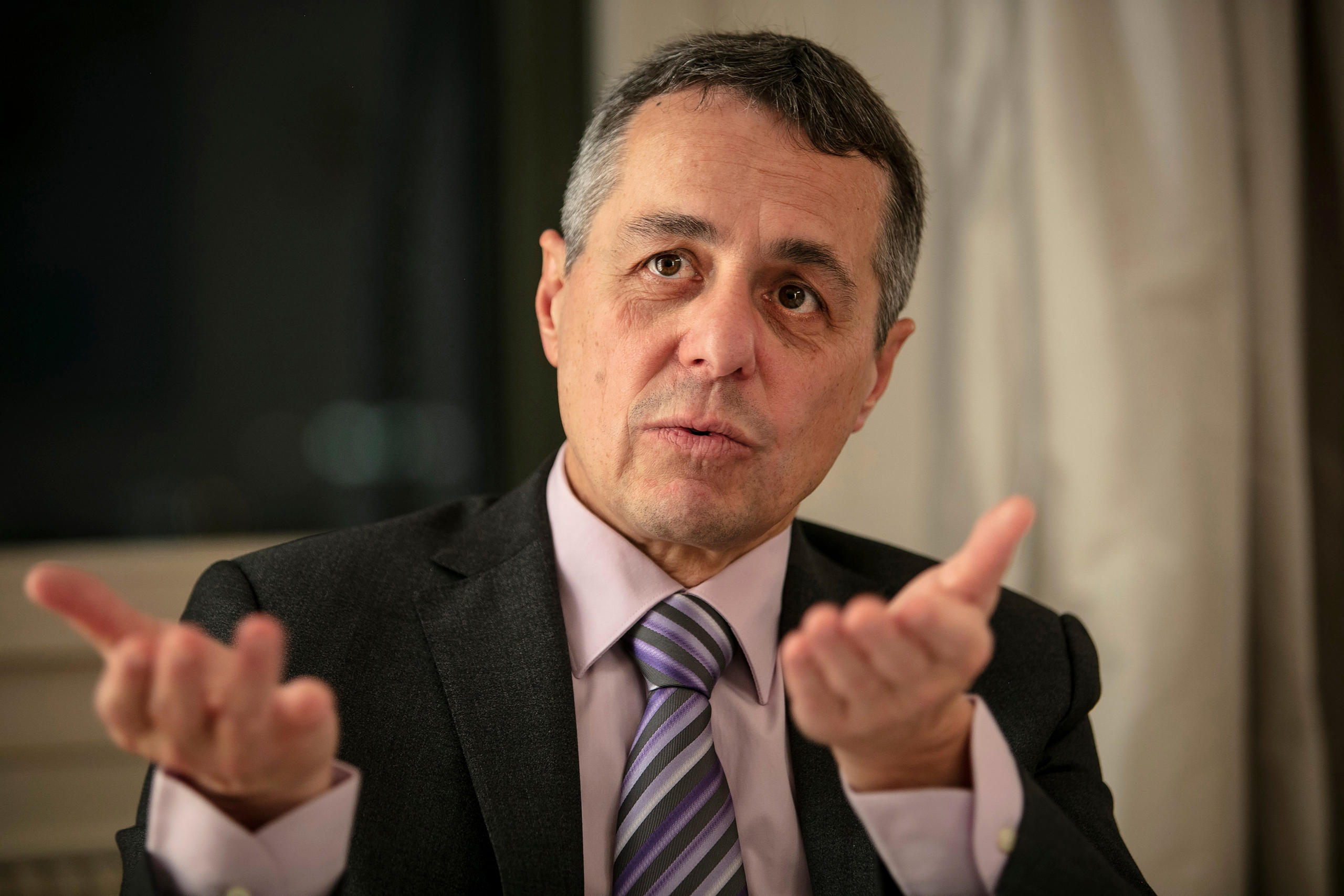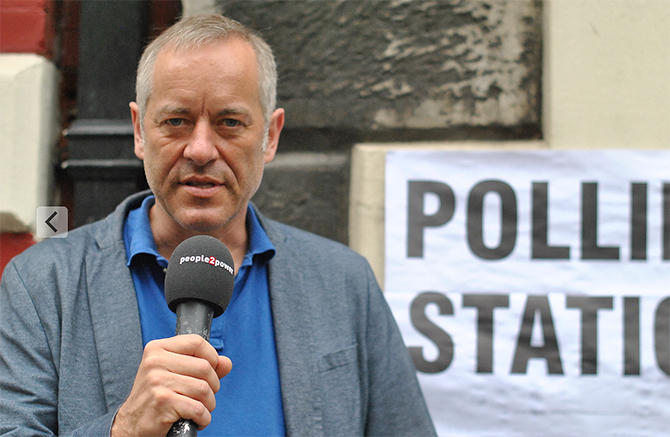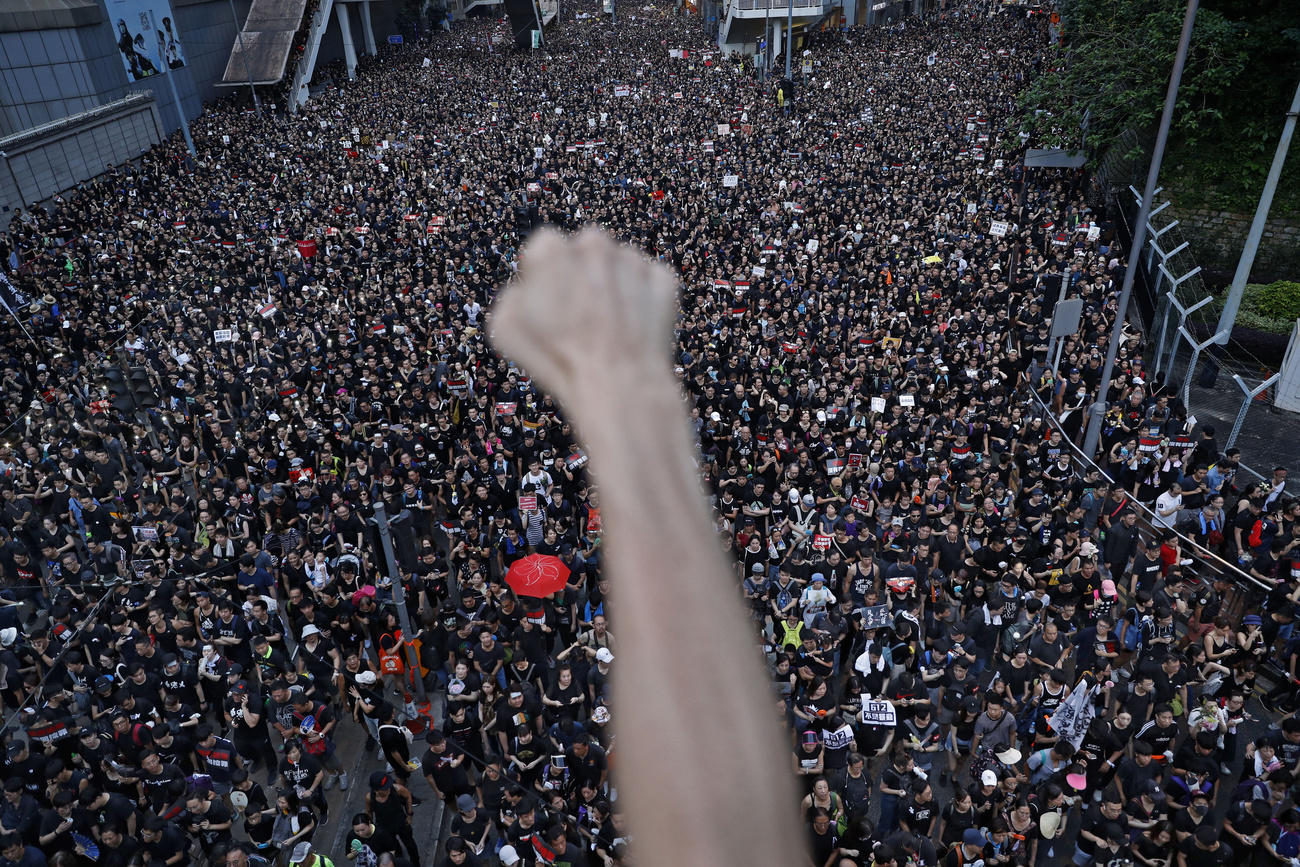Ten key ingredients for a democratic society

The recent elections in Russia shows the country still has a long way to be a successful democracy. For International Day of Democracy this Sunday, here’s a short checklist of the key things needed for a successful democratic system.
The journalist of the Russian television channel looked at me with expectant eyes. She had asked me to give my take on last weekend’s local elections.
“I think the authorities staged a big show to make people forget that many opposition candidates were excluded from standing in the elections,” I said.
“But – what do they think of the digital technology used for the ballot?” she went on, turning to the giant wall of television screens behind me. They showed live footage from the tens of thousands of polling stations across the country.

I said that I was indeed impressed, adding with a slightly sarcastic tone: “It allows us to see beyond doubt that only very few citizens found their way to a polling station.”
In fact, turnout in the September 8 electionsExternal link was a measly 20%.
For the occasion of international day of democracy, here’s a reminder of the ten key ingredients for a functioning democratic political system (in ascending order).
Digitisation has become part of our daily lives but not democracy. Expatriate Swiss can still not use online voting systems to cast their ballot in a vote or in elections.
The government argues that the systems available can be manipulated. But the example of the Baltic state of Estonia shows that it is possible to set up a secure system
Hurdles in a democratic system can be useful but they should not discourage participants. Imagine a steeple race with obstacles on the track that prevent athletes from crossing the finish line.
Similarly, Italy has introduced a 50% turnout quota for the result of a people’s initiative to be valid.
Every parliament has officials, offices and documentation. Such infrastructure must be made available to all citizens in a modern participative democracy.
This includes political education, free media and access to town halls.
The possibility of regular reforms is a quality of a democratic system.
The elected members remain committed to the citizens if it is possible to make mistakes and learn from it by agreeing new solutions.
When elected to office, some politicians quickly begin to use their power to defend their positions and privileges.
Trade unions in Tunisia showed real leadership qualities by agreeing to power-sharing arrangements after the 2010/2011 revolution.
Votes and elections create winners and losers. Yet it is crucial that both sides accept a ballot box decision.
Democracies need answers to the question how a losing side can still be kept ‘happy’.
Bureaucracy often stands between citizens and elected politicians, preventing plausible solutions and insisting on procedures that not in the interest of citizens. It is important that civil servants learn to adapt to more democratic administrations.
And here are the top three criteria:
Freedom of speech is in danger if judges and courts are manipulated by politicians.
An independent judiciary is a fundamental tenet of a democracy.
“We are the people,” protestors in the former German Democratic Republic claimed when the old system collapsed at the end of the Cold War era. The demonstrators called for participatory rights.
Thirty years on, the slogan is used by right-wing nationalists in eastern Germany to win more support. But they want fewer political rights for non-Germans, ignoring a crucial fact.
Every community relies on people’s participation, including the young generation.
Pericles, the influential ancient Greek statesman, knew the importance of dialogue in a democracy. A decision must be preceded by debates about the issue.
The success of a democratic system depends on citizens involvement in the discussions.
Dialogue is the soul of democracy.
Bruno Kaufmann is swissinfo.ch’s global democracy correspondent. He is the director of the Initiative and Referendum Institute EuropeExternal link and co-president of the Global Forum on Modern Direct Democracy. The views expressed in this article are solely those of the authors, and do not necessarily reflect the views of swissinfo.ch.

More
Global democracy looking better as Switzerland slips
Adpated from German/urs

In compliance with the JTI standards
More: SWI swissinfo.ch certified by the Journalism Trust Initiative















You can find an overview of ongoing debates with our journalists here . Please join us!
If you want to start a conversation about a topic raised in this article or want to report factual errors, email us at english@swissinfo.ch.